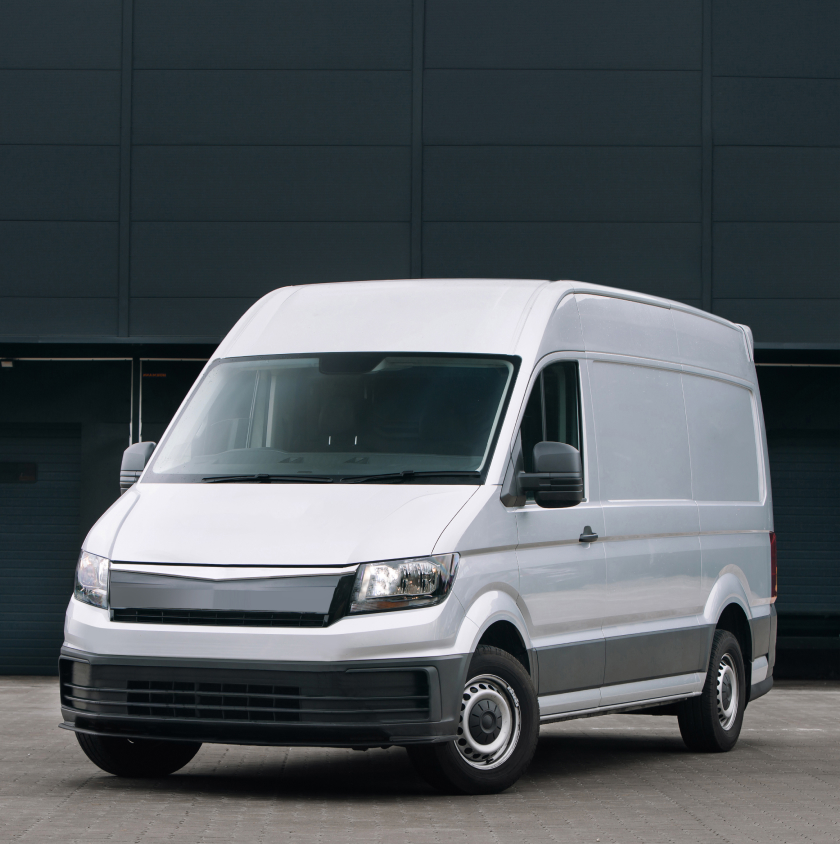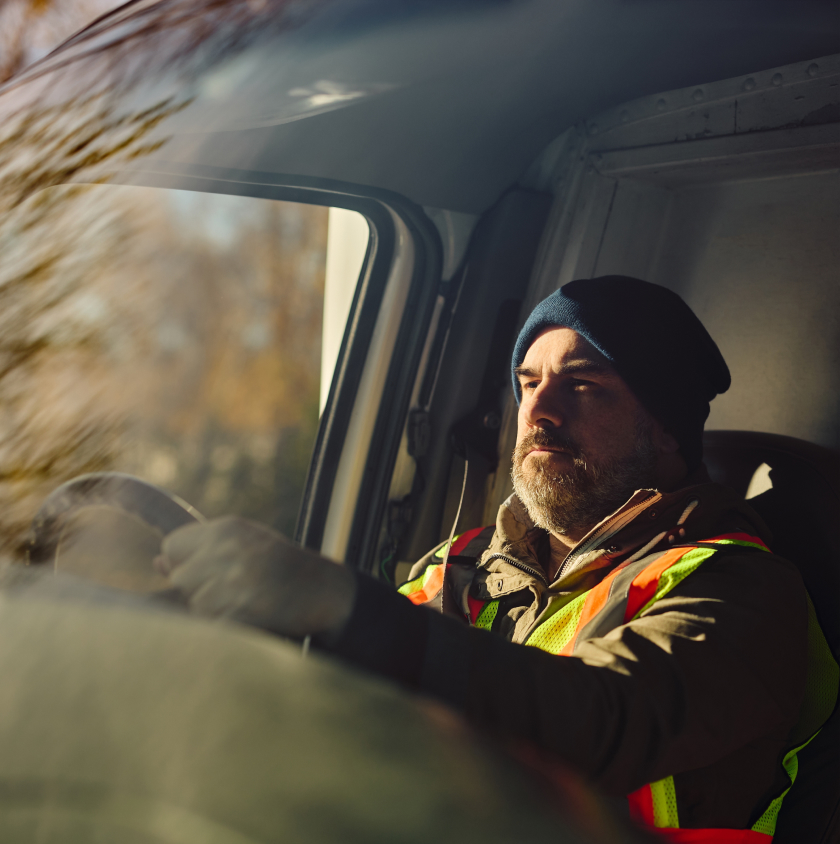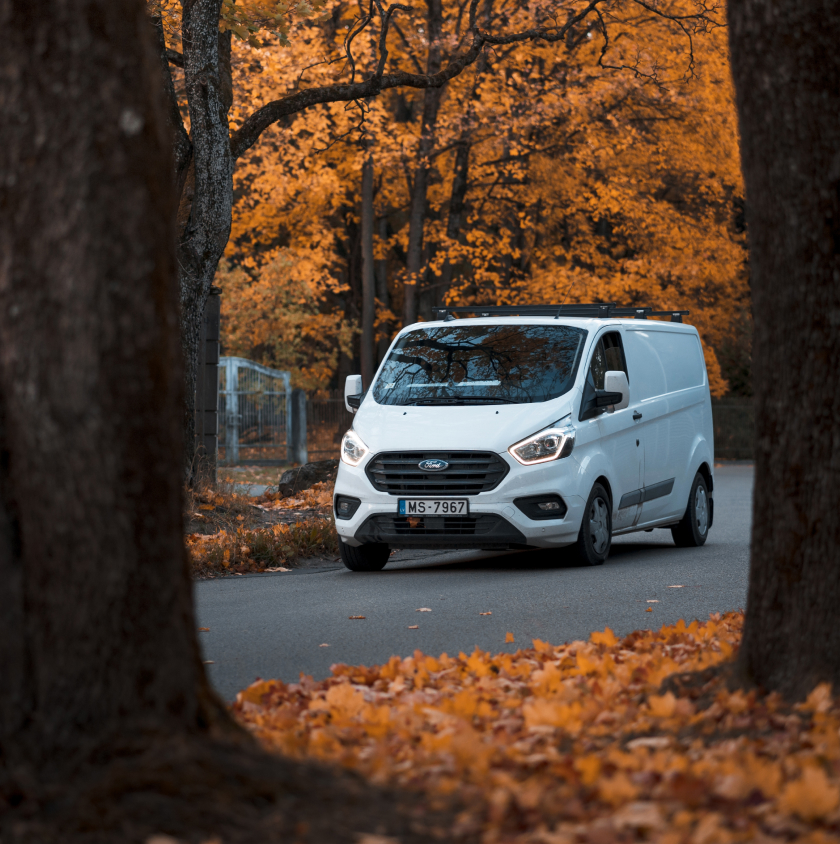
Van Insurance
Compare Cheap Van Insurance Quotes
- Compare 60+ insurers
- Save up to £622* online
- Find a great deal today

Compare Insurance Quotes from top UK’s leading van insurers including:
What is van insurance?
Van insurance is a type of vehicle insurance that specifically covers vans. It provides financial protection in the event that your van is damaged, stolen, or in an accident.
There are different types of van insurance – depending on whether you use it for work or personal excursions.
If you’re looking for dependable van insurance, you’ve come to the right place. SimplyQuote will compare van insurance policies and rates for you, so you can get the right insurance to protect you, and your van, on the road.
How To Compare Van Insurance With SimplyQuote
Comparing van insurance quotes with SimplyQuote is as easy as 1-2-3!
Provide van details
Provide us with the vehicle’s make and model, registration details, and any modifications made to the van. This info can usually be found in your V5C document.
Insurance documents
If you’re changing van insurance providers, give us the information in your previous or current insurance policies. It will help you compare like-for-like and it will also have your claims history detailed (which will impact the quotes you’re given).
Personal details
We need the personal details of the driver and policyholder, as well as your driving history and any offences linked to your licence.

What Does Van Insurance Cover?
Comparing van insurance quotes with SimplyQuote is as simple as 1-2-3!
Business van insurance
You need business or commercial van insurance if you use your van for work, including commuting. You can use your van either for haulage (delivering goods) or carriage of your own goods (carrying your own tools or equipment to work).
Private van insurance
This is for van owners who drive their van for pleasure, social, or domestic purposes. Anything that’s not work-related falls within this insurance policy. This includes going away on holiday, being a soccer mom, or driving your kayak to the lake.
What Levels Of Van Insurance Can I Get?
There are different levels of van insurance cover that you can choose from. Here are the policy options:
Comprehensive
Comprehensive cover insures the cost of repairing your vehicle and that of the other driver if you’re in an accident, and also replaces the van if it has been stolen.
Despite being the most comprehensive, this type of cover is not necessarily the most expensive.
The exact cover will depend on the policy, but comprehensive van insurance typically covers:
- Loss or damage to the vehicle
- Roadside repairs
- Tool cover
- Windscreen cover
- Replacement locks if you lose your keys
- Fire damage
- Third-party cover
Third-party, fire and theft
This basic cover will pay for damages to another driver’s vehicle or property if you caused the accident. It will also cover any injuries sustained by a third party.
If your van is stolen or catches on fire, this policy will provide financial security.
However, if you cause an accident, it will not cover the cost of repairs to your own van.
Third-party only
This is the minimum insurance requirement according to UK law. This policy will cover all damages and injuries sustained by third parties if you cause the accident.
Despite being the most basic cover, it’s not always the most affordable, which is why you need SimplyQuote’s comparison service to help you find cheap van insurance that still meets your needs.
Looking for the cheapest Van Insurance? Get your quote today!
Get Quotes
What Are The Different Types Of Van Insurance?
Whether you need private or business van insurance, you must look at the different types of cover included in the policies.
The best policy will depend on how you use your van.
Haulage
This cover is best for couriers or delivery drivers (along with courier insurance). It provides cover if you’re responsible for transporting someone else’s goods in exchange for money.
Couriers are legally required to have at least haulage insurance to protect against the damage of someone else’s property.
Haulage insurance is different from courier insurance – the former is for someone who only has one destination per job while the latter is for someone who makes many stops.
Carriage of own goods
If you carry commercial items related to your own work, then this is the insurance policy you need.
Here’s an example: If you’re a sole trader like a florist and you need to collect the flowers from the supplier to take them to your shop, this is the cover for you. Builders who drive to and from work with all their tools in the van should also get this policy.
Carriage of goods for hire and reward
Hire and reward insurance covers you if you make local deliveries. Whether you’re dropping off packages, bakery goods, or food takeaways, this is the cover to get.
Note: It won’t cover you if you transport furniture or high-risk and dangerous goods.
Short-term
If you only need to drive a van for a couple of days ranging to a few months, short-term van insurance has got you covered.
This temporary van insurance policy will only cover you for a certain period, which you can decide on when you take out the policy.
Classic van cover
If you own a restored, old-school, vintage or collectible van that is roadworthy, you need to get classic van cover.
Fleet insurance
Fleet insurance is the best option if you have multiple vans that you use for commercial purposes. Insuring each individual van can be a nightmare, especially if you have different drivers driving different vans at different times.
Having all your vans and drivers insured by a single fleet insurance policy will be the best option.
Black box insurance
Black box insurance, also called telematics insurance, calculates your premiums based on your driving habits or behaviours. The insurance company will send you a black box that should be installed in your van and linked to a smartphone app.
This black box will record your driving habits, like speed, mileage, and where you drive. The insurance provider can view this data remotely, and decide on the cost of your premium.
Social use
This cover is for if you plan to use your van for personal use, like visiting friends or going shopping. This type of insurance will not cover commuting or any work-related driving.
Electric van insurance
This special insurance will protect your electric vehicle, as electric vans require more expensive parts and repairs if an accident happens.
What Van Insurance Add-Ons Should I Consider?
Breakdown cover
Your van will be fixed by the roadside or taken to a mechanic should it break down.
Personal belongings cover
Protects your personal belongings against damage or theft while stored in your van.
Multi-van insurance
Similar to fleet cover, it insures more than one vehicle on a single policy.
Courtesy van cover
You will be provided with a courtesy van if your van is damaged or in an accident.
Tool insurance
Covers the cost of replacing tools that you store in your van if the tools or your van is stolen.
Any driver insurance
If several drivers use the same van, they will all be covered by this add-on.
Public liability insurance
Protects you if members of the public file an insurance claim against you if they were injured by you at work.
Misfuelling cover
It’s shockingly common how often a van is filled with the wrong fuel type. This policy will pay for the draining and cleaning of your tank, and may also cover part or the total cost of filling your tank with the wrong fuel.
No-claims discount
This discount is offered when you’ve been driving for a long time without making an insurance claim. It is usually calculated in years, e.g. a 2-year no-claims discount.
Employers’ liability cover
If you employ staff, this is a legal requirement. It will protect you against claims of negligence made by your employees.
How Much Does Van Insurance Cost?
The cost of van insurance depends on several factors:
- Age: Younger van drivers are considered higher risk and will have higher premiums. Older drivers are considered to have more experience, resulting in lower premiums.
- Location: Where you live, work, and park your van will influence the policy costs. If you live in a high-crime area or where there are lots of road accidents, you can expect expensive premiums.
- Occupation: If you work in a sector considered high-risk by your insurer, you will face higher premiums.
- Driving history: Have you had any driving convictions? If you have, you’ll face expensive premiums!
- Claims history: If you’ve been lucky enough to never make a claim, you’ll be offered cheaper van insurance by the provider.
- Your van: Vans are separated into insurance groups, just like with car insurance. Higher groups will cost more to insure.
What Is The Average Cost of Van Insurance?
Based on our comprehensive research, the average cost of van insurance is as follows:
Cost of Van Insurance by Cover Level
| Cover Level | Annual Premium (GBP) | Compulsory Excess (GBP) | Voluntary Excess (GBP) |
|---|---|---|---|
| Comprehensive | 1,315 | 100 | 395 |
| Third-party, Fire & Theft | 2,299 | 42 | 550 |
| Third-party | 2,412 | N/A | N/A |
Looking for the cheapest Van Insurance? Get your quote today!
Get QuotesAverage Annual Cost of Van Insurance by Van Age
| Van Age | Annual Cost (GBP) |
|---|---|
| 2020 | 1,333 |
| 2017 | 1,302 |
| 2014 | 1,156 |
Average Cost of Van Insurance by Driver Age
| Driver Age | Annual Premium (GBP) | Voluntary Excess (GBP) | Compulsory Excess (GBP) |
|---|---|---|---|
| 25 years | 2,026 | 67 | 1,071 |
| 35 years | 1,140 | 100 | 354 |
| 45 years | 1,282 | 100 | 350 |
How Can I Get Lower Van Insurance Rates?
Are you tired of spending your entire salary on van insurance? Here are some easy ways to bring down your insurance rates.
Compare van insurance quotes
SimplyQuote makes it simple to compare van insurance quotes to help you find cheap van insurance that still provides you with the cover you need.
Instead of letting your policy roll over, let us help you find the right van insurance policy for your vehicle.
Pay annual premiums
Monthly instalments often have interest added to them, meaning it is much cheaper to pay your premium upfront for the whole year.
Improve van security
Installing an alarm, immobiliser, central locking, and tracking device can help bring down your premium. Just first check with your insurance provider whether the cost of installing security measures will balance out the reduced cost of your premium.
Increase your excess
By increasing how much you’re willing to pay out of pocket should you make a claim, you’re lowering your risk to the insurer. You’re also likely to make fewer claims and drive more carefully since you don’t want to pay the excess, so your insurer will offer you a lower premium.
Don’t modify your van
Van modifications can impact the value of the vehicle, as well as its power. This may increase your premium
Modifications include:
- Racking
- Body kits, vinyl wraps, or spoilers
- Boosting engine performance
- Adding seats
- Changes to the exhaust
- Alloy wheels
- Cooking or refrigeration equipment
Before making any modifications, ask your insurance provider how it will impact your premium.
Lower your mileage
If you’re able to limit how much you drive, insurers believe you’re less risky to insure. The less time you spend behind the wheel, the less likely you are to get into an accident.
Build your no-claims discount
If you don’t make a claim for a set period, you’re entitled to a discount. The more years you’ve gone without making a claim, the higher your discount (and the lower your premiums) will be.
Don’t over-insure
Make sure you know the actual value of your van, and also avoid adding on too many additional cover options. Some of the add-ons, like breakdown cover, might actually be more affordable to pay out of pocket than to include it in your premium.
What Types of Vans Can Be Insured?
Van insurance covers:
- Panel vans
- Pickup vans
- Tippers
- Transit vans
- Livestock vans
- Dropside or curtainside vans
- Modified vans
Frequently Asked Questions
You need van insurance by law unless your van has been declared as off-road. Even if you leave your van parked most of the time and only drive it occasionally, you will need year-round cover.
Yes – according to UK law, having at least third-party van insurance is a legal requirement if you own or drive a roadworthy van or pickup.
The only exception is if your vehicle has been registered as off-road (Statutory Off Road Notification; SORN) and is parked on private property.
Yes, if the van is owned by the company, it can be insured under the company name.





